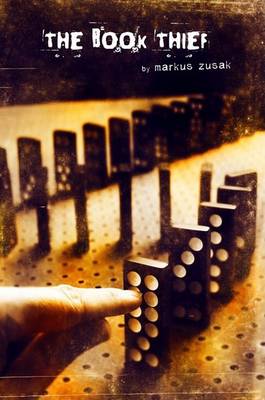Reviewed by adastra on
- It tells the story of a German family in World War II (which at one point houses a Jew in their basement). This is unusual because the majority of fiction I encountered on WWII so far focused on the Jewish experience.
- Its narrative is very unconventional. It is narrated by Death himself (or as I as a Sandman-fan like to think, herself).
- The narrative is not exactly chronological.
- It has A LOT of chapters, some of which are incredibly short.
- It uses idiosyncratic language and makes heavy use of odd metaphors.
- It uses interesting stylistic methods.
- It's a book about Germany written by an Australian author in English with Bavarian embellishments.
So what did I like about the book?
- It is an incredibly easy read. A book of over 500 pages seemed a bit daunting, especially in the middle of the semester. But I soon discovered that its lightweight writing style captivated my attention easily, and I kept on reading. It's doesn't happen very often that I read such a big book in such a short amount of time.
- Despite its occasional naivete, it can be emotionally touching. The story reminded me of some of the things my ancestors experienced in the war.
...and what I didn't like:
- The aforementioned naivete seems a bit weird at times for me as a German. Early on, Nazis aren't explicitly attributed as evil immediately. That just doesn't feel right as a German, because Nazis must always be evil, otherwise we feel guilty. Throughout the book, however, it becomes quite obvious that they are very evil (duh). I do realize that we're meant to see Nazi Germany through the eyes of the Germans at the time, which is a very complicated matter.
- The book has some passages which are mildly uninteresting and where nothing of importance to the plot seems to happen.
- The main characters don't seem particularly intelligent. Learning to read can't be that hard, especially for someone who eventually reads so much.
- The ending was a bit anti-climatic. And the whole romantic aspect of it was totally unnecessary, the book could have done without it.
In summary, I think it's a book very well worth reading, as it captures the atmosphere of everyday life in Germany in the early 1940s nicely (or rather, gruesomely).
Reading updates
- Started reading
- 31 October, 2014: Finished reading
- 31 October, 2014: Reviewed
